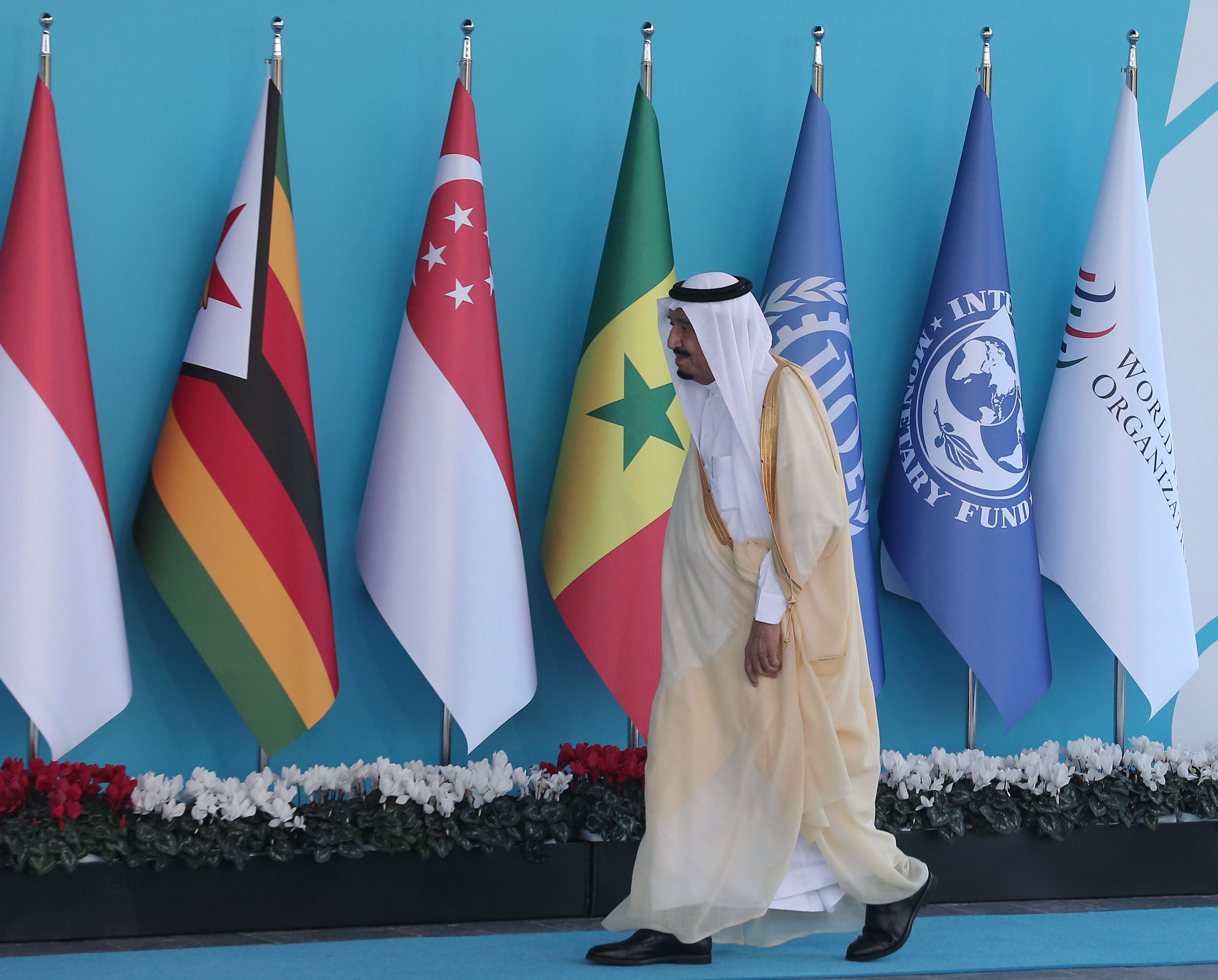Paris attacks: Saudi Arabia's King Salman donates $110m to set up anti-terror centre in wake of French shootings
King Salman said the fight against terrorism was 'the responsibility of the entire international community'

Your support helps us to tell the story
From reproductive rights to climate change to Big Tech, The Independent is on the ground when the story is developing. Whether it's investigating the financials of Elon Musk's pro-Trump PAC or producing our latest documentary, 'The A Word', which shines a light on the American women fighting for reproductive rights, we know how important it is to parse out the facts from the messaging.
At such a critical moment in US history, we need reporters on the ground. Your donation allows us to keep sending journalists to speak to both sides of the story.
The Independent is trusted by Americans across the entire political spectrum. And unlike many other quality news outlets, we choose not to lock Americans out of our reporting and analysis with paywalls. We believe quality journalism should be available to everyone, paid for by those who can afford it.
Your support makes all the difference.Saudi Arabia’s King Salman has called for a United Nations-backed centre to fight terrorism, according to reports.
In a speech to the G20 summit in the Turkish coastal town of Antalya, the king claimed he had already donated $110m (£72m) to set up the proposed “International Centre for the Fight against Terrorism under the UN”, according to Saudi news channel al-Arabiya.
He reportedly called on other countries to contribute to the centre, which he said would serve as an international intelligence and research hub.
According to the state-controlled Saudi Press Agency, he said: “The war on terrorism is the responsibility of the entire international community and it is a global disease that has neither nationality nor religion.
“It, as well as its funding, must be fought. International co-operation must be strengthened in this regard.”
He offered his condolences to the families of the victims and the French people, and said the country must come up with an urgent solution to the Syrian conflict, the Bahrain News Agency reports.
Saudi Arabia has been widely criticised for fuelling the crisis, amid claims it funds Isis and other Sunni Muslim groups in Syria aiming to oust President Bashar al-Assad.
But in May, King Salman vowed to “wipe out” Isis after the group's attack on a Shia mosque in the east of the country killed 21 people.
It comes as the ruler faces increasing pressure at home since he took the throne in January after the death of his brother, King Abdullah bin Abdulaziz.
It has been suggested he could be the subject of a potential palace coup in the wake of his response to the Hajj stampede disaster, which killed over 2,000 people, and for continuing a costly war against Houthi rebels in Yemen.